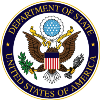International Religious Freedom — Why Does It Matter, Why Care?
By: David Saperstein serves as Ambassador-at-Large for International Religious Freedom at the U.S. Department of State.
Since 1993, successive U.S. Presidents have proclaimed January 16 as National Religious Freedom Day. Religious freedom involves the right of every person to follow the dictates of one’s conscience; to believe or not to believe; speak about one’s beliefs; teach one’s beliefs to one’s children; and manifest one’s beliefs through activities such as gathering for worship or building houses of worship. It is a concept grounded in respect for the rights and beliefs of others and deeply connected to our DNA as Americans.
The mandate of the Department of State’s International Religious Freedom (IRF) Office and our Ambassador, David Saperstein, is to lead U.S. government efforts to protect religious freedom abroad. We advocate for these rights as a moral imperative, but also and because the existence of religious freedom helps promote more peaceful, secure, stable, and prosperous societies, and stems violent extremism.
We see three systemic challenges to religious freedom. First, restrictions by governments, including laws prohibiting blasphemy, apostasy, or conversion and laws that purport to protect “religious sentiments” by criminalizing “defamation of religion” speech. Second, we find societal hostility, discrimination, and intolerance, including anti-Semitism, and anti-Christian and anti-Muslim sentiment. And third, thousands suffer the scourge of non-state actors, such as ISIL and Boko Haram, committing atrocities in the name of religion.
Over the past few years, as a result of sustained Congressional and public support, our office has nearly doubled its staff and dramatically increased its global programming activities. In December, Congress passed a new law to further strengthen our mandate. We and our colleagues at hundreds of U.S. missions overseas engage with governments, international organizations, civil society, and religious communities to advance respect for these rights. We highlight global and national trends in our annual International Religious Freedom Report. We use our diplomatic leverage to call attention to the most egregious violators as “Countries of Particular Concern” for religious freedom abusers.
This year, Martin Luther King Day coincides with National Religious Freedom Day. Reverend King‘s dream of equality for all is part of the American Dream; so too is religious freedom. We must continue to dream, and act, to ensure progress on both ideals and mitigate slippage. Today, let’s dare to dream more boldly and take bolder actions to reaffirm our pledge to promote religious freedom in all corners of the globe.
This entry originally appeared on DipNote, the U.S. Department of State’s Official Blog.
